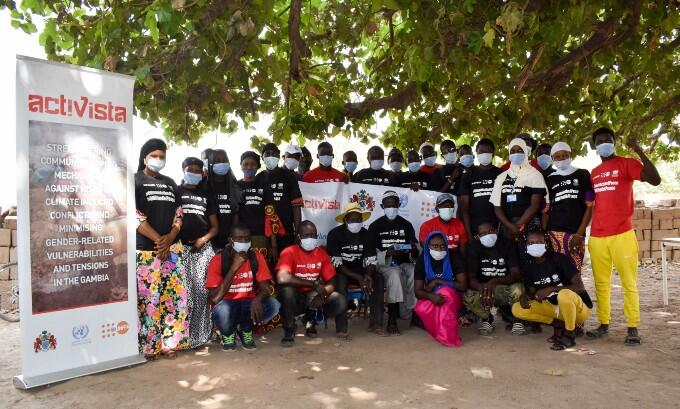Climate Change is impacting everyone, everywhere especially the poor, vulnerable and those lacking the resources to adapt. In The Gambia, these groups are mainly of women and young people due socio-culturally fueled power imbalances, their limited access to ownership and control of resources and lack of adequate inclusion and participation in decision making.
According to community consultations held by The Gambia Red Cross Society and the World Food Programme in the Central River, North Bank and Upper River Regions of The Gambia, there are significant linkages between rising communal conflicts and climate change and its related impact on lives and livelihoods in The Gambia. These consultations also indicated very weak community-level dispute resolution platforms and monitors which were further found to exclude women and young people. The lack of inclusion of this demography can be attributed to socio-cultural norms which augment gender and age inequalities and gender-based injustices.
In order to support the enhancement of conflict resolution and climate change mitigation measures that are representative of women and young people’s plight, UNFPA with funding from the UN Secretary General’s Peacebuilding Fund project on Climate action: Strengthening community coping mechanisms to mitigate risks of conflicts and reduce climate related tensions supported community dialogues targeting women and youth smallholder farmers by ACTIVISTA The Gambia in the North Bank Region (NBR), Central River Region (CRR) and Upper River Region (URR).
The solution to climate change and its related conflicts is to plant more trees and reduce carbon emissions, thus ensuring that community tensions which disproportionately affect women due to climate-related vulnerabilities are effectively addressed. - Kani Fatty, Perai Tenda, URR

Held from the 8 to 12 March 2021, the engagements reached about 163 people in communities across the three (3) regions and served as platforms for communities to discuss how they are impacted by climate change, recognise how this impact is driving rising conflict among them and understand the need to strengthen women and youth voices in dispute resolution mechanisms.
The UN Peacebuilding Climate Change project which is jointly implemented by UNFPA, WFP and ITC is geared towards working with Government, Civil Society Organisations and communities to address conflict and tensions in local agricultural communities, affected by the increasing impact of climate change on their lives and livelihoods. As a result, the project will support the development of inclusive and representative community-level peacebuilding and dispute resolution practices to address ongoing conflicts.
Media contact:
Haddy Jonga - Programme Analyst Communications, UNFPA The Gambia jonga@unfpa.org


